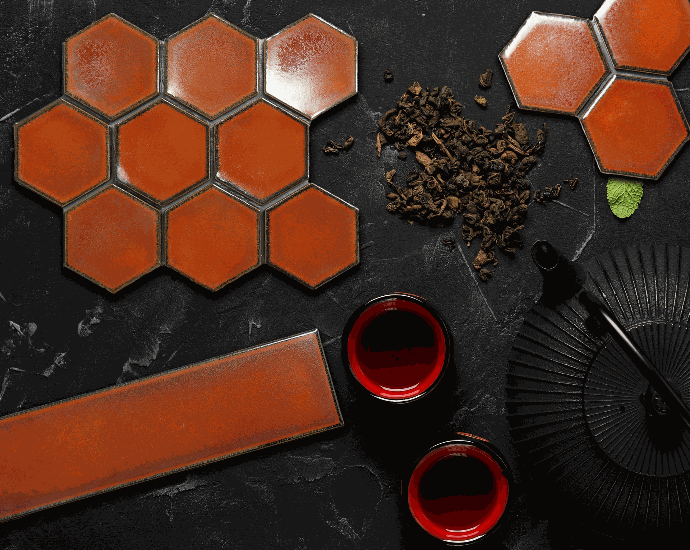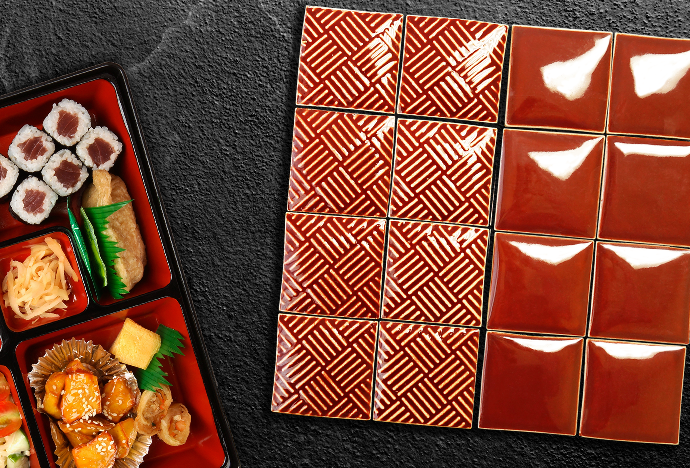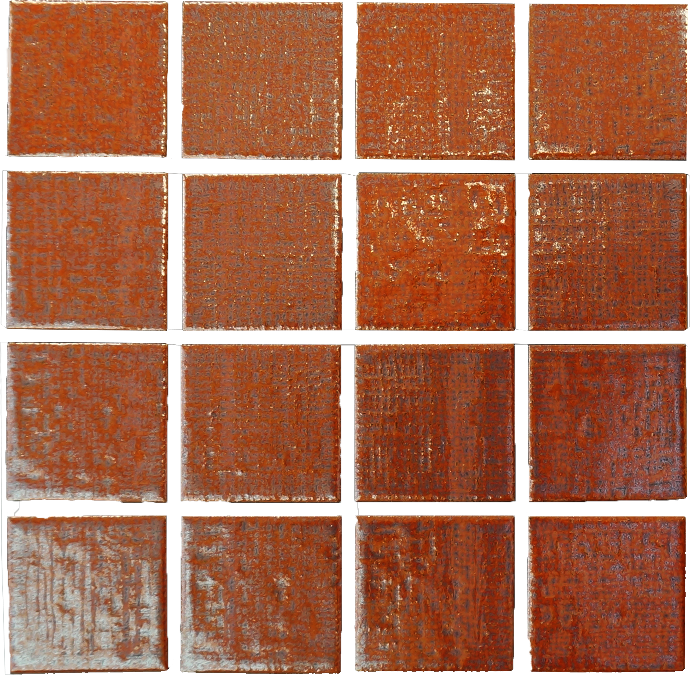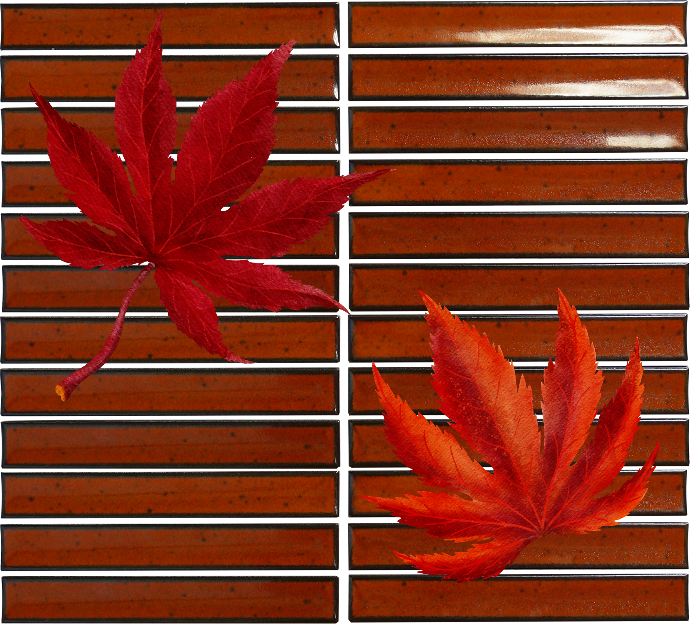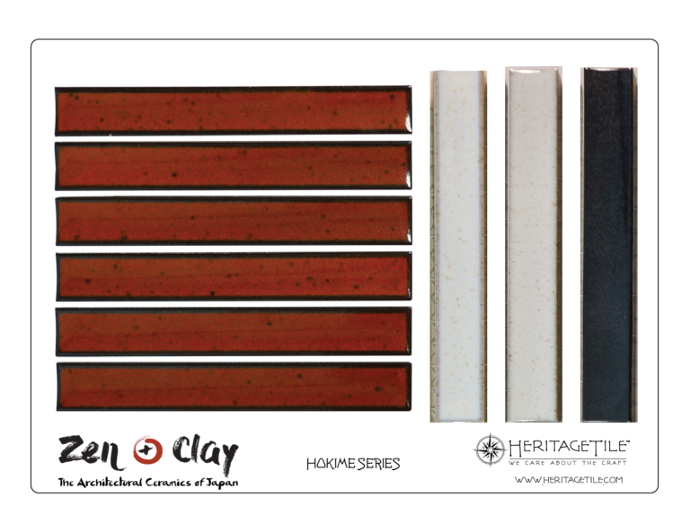Momiji-gari (紅葉狩) literally means “hunting red leaves,” which is the main draw for many visitors to Japan in autumn. It derives from momiji (red leaves, or maple tree), and -gari (hunting).
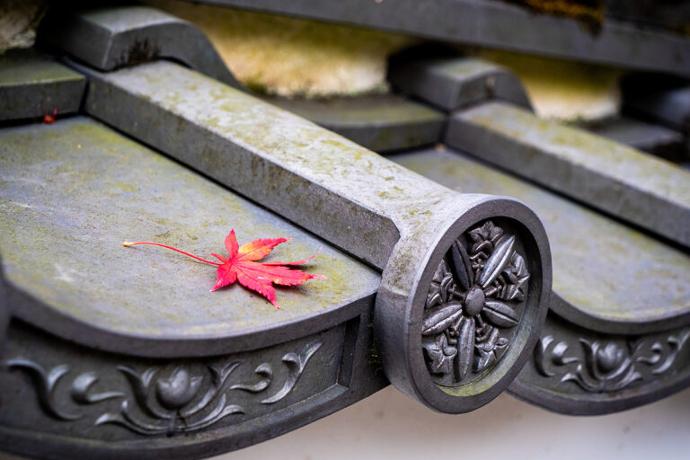
In practice, momiji-gari and koyo do not refer exclusively to maple leaves. Rather, they’re catch-all terms for “leaf peeping,” or viewing the fall colors. Think entire mountains enveloped in swathes of red, orange, and gold; an avenue of golden ginkgo trees leading to a shrine; starry red and yellow maple leaves blanketing a carpet of moss.[https://boutiquejapan.com/fall-in-japan/]
Momiji have inspired generations of ceramicists to develop glaze palettes rich in these autumn colors. Consider these selections from our Zen+Clay collection for your next tile project.
Miyabi Series
Wabi-Sabi aesthetic traditions are expressed through the uniquely rustic qualities of the Miyabi series.
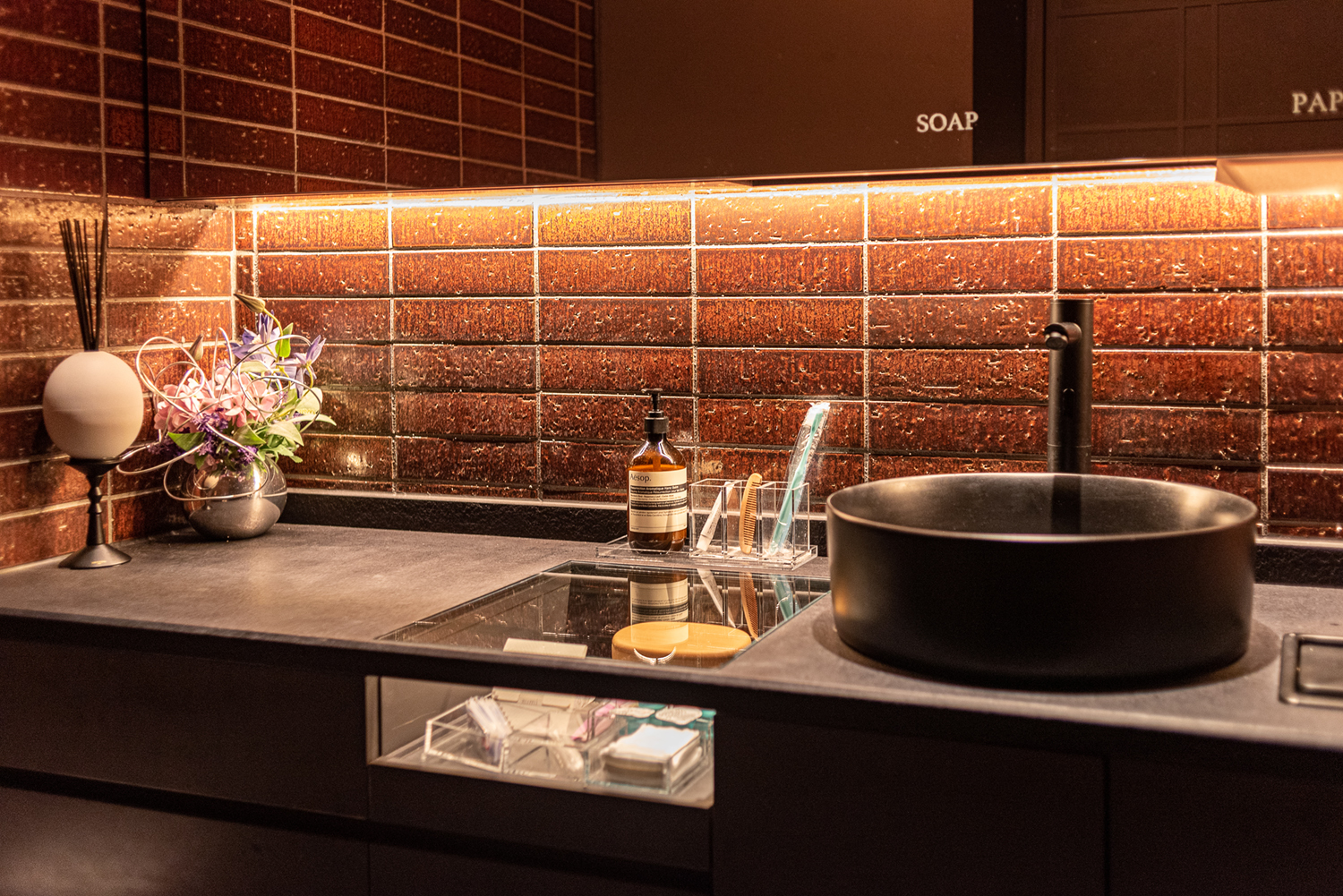 The Maple Red glaze reflects a gamut of autumn colors and textures.
The Maple Red glaze reflects a gamut of autumn colors and textures.
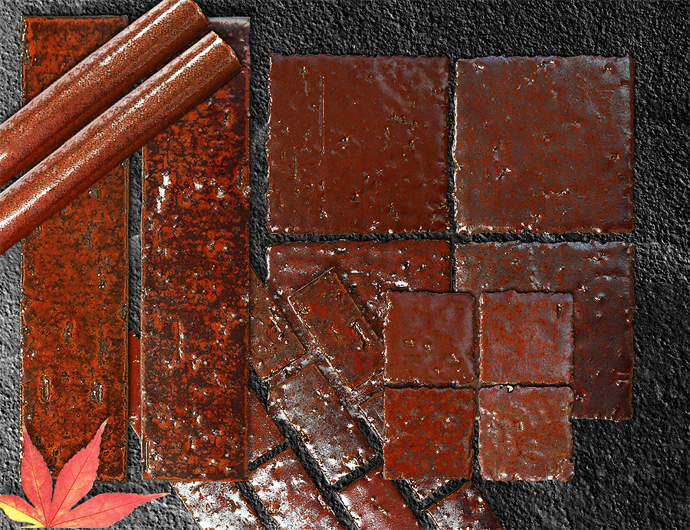
Godai Series
Godai represents the 5 principle elements of nature.
Plum Red, the fire element, is joined by a rich palette of color and finish options representing the other 4 elements; earth, water, wind and void.
Hanakago Series
Hanakago refers to the traditional art of weaving bamboo to create elaborate, sculptural flower baskets. The pillowed porcelain body allows the glaze to thin and pool, resulting in unique variation and depth of color.
Orimono Series
Orimono evokes the rustic nature and delicate textures of woven tatami mats and traditional fabric. The Brick glaze option embodies these autumn hues with black highlights to create a lavish surface.
Hokime Series
In meditative zen gardens, meaning is conveyed through Hokime, the artform of raking sand to mimic ocean waves, represented in these concave tile surfaces.
